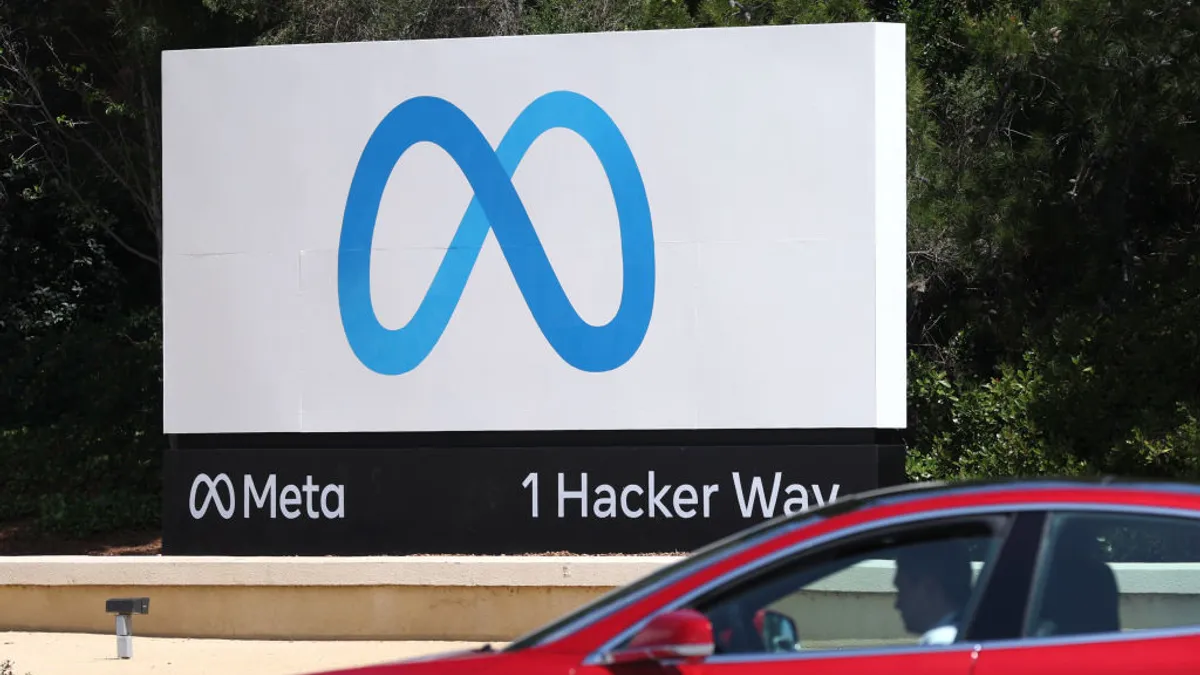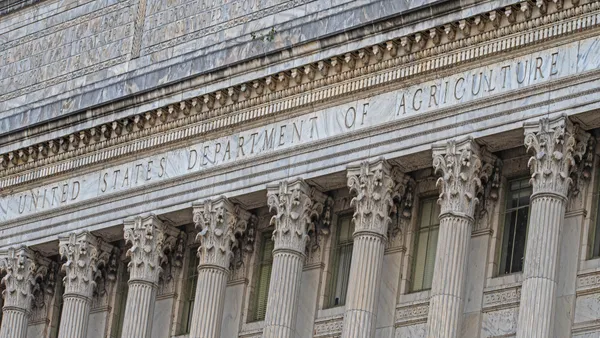Dive Brief:
- Meta has joined the chorus of companies reversing course on diversity, equity and inclusion programs and is ending a variety of DEI initiatives, including its supplier diversity program, a company spokesperson confirmed to ESG Dive on Friday.
- Meta also cut its DEI team and will end equity and inclusion programs and representation goals, and cease to incorporate the “diverse slate approach” in its hiring processes, according to changes first reported Friday by Axios. The company’s web page outlining its diversity practices is no longer active.
- The tech and social media conglomerate made the changes the same week it announced it would end its third-party fact-checker program, as it broadly looks to step away from corporate policies that may put it in the crosshairs of a Republican-led Congress and President-elect Donald Trump’s incoming administration.
Dive Insight:
Meta’s shifting position on DEI comes amid changing political headwinds in the U.S., which have led to a number of corporations shuttering or rolling back DEI initiatives after the Supreme Court struck down affirmative action in college admissions. The tech industry has not been immune; Microsoft cut several diversity roles last year, and Amazon will reportedly also halt some DEI programs, CNBC reported Friday.
Meta Vice President of Human Resources Janelle Gale reportedly announced the moves in an internal employee memo, attributing the policy revisions to the changing “legal and policy landscape surrounding diversity, equity and inclusion efforts in the United States,” per Axios.
Gale reportedly told employees that the Supreme Court’s affirmative action decision signals “a shift in how courts will approach DEI” and “the term 'DEI' has also become charged.”
Cutting DEI programs represents a reverse in public tone for a company that lists diversity, equity and inclusion as a priority of critical importance to both stakeholders and its business, according to Meta’s responsible business practices company page.
Meta previously reported on DEI metrics and said in its 2023 Responsible Business Report that it wanted to “build a workforce where employees from every background and with a wide range of experiences and perspectives, are seen, valued and heard.”
However, the tech giant — which owns platforms such as Facebook, Messenger, Instagram and WhatsApp — cut a significant portion of its DEI staff the same year, including personnel that were in charge of hiring underrepresented people, per a CNBC report. At the time, the company also laid off nearly every member of its Sourcer Development Program, which aimed to equip employees from diverse backgrounds with the skills needed for corporate technology recruiting.
The company’s 2023 report also included updates to its supplier diversity program, which it launched in 2016, according to a 2018 blog post. The responsible business report said the program “embodies who [Meta] aspire[s] to be as a company that provides equitable opportunity for all.”
When it came to supplier spend by race and ethnicity, the company did make some progress in choosing more diverse suppliers. The 2023 program update found that 80% of Meta’s supply spend went to Asian suppliers, up 39% from 2021. However, 6% of the company’s supply spend went to White suppliers and 5% went to Black suppliers; down 15% and 19%, respectively, from 2021. Latino or Hispanic-owned suppliers represented 2% of Meta’s spend in 2023, down 3% from 2021, according to the report.
The supplier diversity program’s original announcement is no longer available on Meta’s website.
Last year saw a wave of DEI rollbacks across industries. The list of high-profile U.S. companies that eliminated DEI programs, roles or shifting strategies includes Tractor Supply, Harley Davidson, the maker of Jack Daniel’s, Ford, Molson Coors, Lowe’s and Walmart.
That trend has continued into 2025, with McDonald’s beginning the year by announcing a shift to “global inclusion.”
The federal leadership transition has also made climate alliances unpopular ahead of the presidential transition.
Six major U.S. banks have left the United Nations-backed Net-Zero Banking Alliance in the past month, and BlackRock confirmed to ESG Dive Friday it left the Net-Zero Asset Managers initiative.











